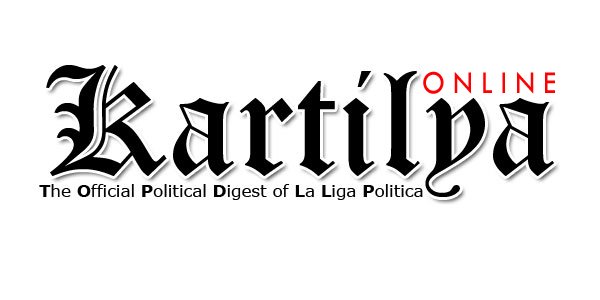OPPOSE THE TOTAL SELLOUT
OF OUR NATIONAL PATRIMONY
Editorial|February|2009
In 2007, the Arroyo administration sold PhP90.6 billion worth of public assets and properties in its desperate attempt to keep the buckling economy afloat, and to cover up for heavy losses from the global economic recession and domestic corruption. This is the biggest in the history of Philippine government, and needless to say, the worst.
While peasants remain landless and squatters on lands they have been tilling for decades, the vast plains and arable lands have been converted to golf courses, subdivisions, malls, et cetera––all of which are owned by foreign corporations and their local counterparts belonging to the ruling elite of Philippine society. The frontiers have not been spared and are now corralled for logging and/or mining concessions.
Under such schemes, our economy remains oriented in exporting raw materials and human workforce, but overly dependent on foreign imports and financial capital. By ardently delivering the country’s commerce and industry into the hands of foreign monopolists, the government has ultimately placed the Philippine economy in a backward state.
The Arroyo government argues that this scheme is actually the face of development and progress, a Strong Republic. But the actual state of majority of the Filipino people belies the devious claims of the Arroyo administration. Simple arithmetic would show that the Land Use Conversion, Trade Liberalization, and Privatization programs are counterproductive to the national economy and only benefits the likes of the First Family.
In the last two years alone, more than 80% of Filipino families have had to make dowith Php110 a day while the top 20% takes 52.8% share of the country’s total family income –– a grave disparity in the distribution of the nation’s wealth. The worst is underway now that Malacañang
is pulling all strings in ramming its agenda to change the charter. Hellbent to stay in power beyond 2010, the president subscribes to the advice of IMF/WB and the US government to grant 100% land ownership to foreign businesses to “save” the country’s ailing economy, in exchange for financial aid and political support.
This will consequently hasten the privatization of the remaining governmentowned and controlled corporations (GOCC), and open the economy totally naked to foreign plunder and pillage. At this rate alone, the entire country is going right down to its grave.
Macapagal-Arroyo’s subscription to this scheme being pressed by international monopolists under neo-liberal globalization is a total degradation of Article XII of the Philippine Constitution.
If the president and her cohorts in Malacañang and the Congress succeed in maneuvering to dismantle all Constitutional protection on economy and national patrimony, the entire country will undoubtedly plunge into a deep crisis far worse than any it had in history. With various issues being churned on all sides to divert the public’s attention from this matter, there is a need for all nationalists to be ever more vigilant in exposing and opposing the vile attempts to desecrate the very vanguard of our democracy--our Constitution.
OF OUR NATIONAL PATRIMONY
Editorial|February|2009
In 2007, the Arroyo administration sold PhP90.6 billion worth of public assets and properties in its desperate attempt to keep the buckling economy afloat, and to cover up for heavy losses from the global economic recession and domestic corruption. This is the biggest in the history of Philippine government, and needless to say, the worst.
While peasants remain landless and squatters on lands they have been tilling for decades, the vast plains and arable lands have been converted to golf courses, subdivisions, malls, et cetera––all of which are owned by foreign corporations and their local counterparts belonging to the ruling elite of Philippine society. The frontiers have not been spared and are now corralled for logging and/or mining concessions.
Under such schemes, our economy remains oriented in exporting raw materials and human workforce, but overly dependent on foreign imports and financial capital. By ardently delivering the country’s commerce and industry into the hands of foreign monopolists, the government has ultimately placed the Philippine economy in a backward state.
The Arroyo government argues that this scheme is actually the face of development and progress, a Strong Republic. But the actual state of majority of the Filipino people belies the devious claims of the Arroyo administration. Simple arithmetic would show that the Land Use Conversion, Trade Liberalization, and Privatization programs are counterproductive to the national economy and only benefits the likes of the First Family.
In the last two years alone, more than 80% of Filipino families have had to make dowith Php110 a day while the top 20% takes 52.8% share of the country’s total family income –– a grave disparity in the distribution of the nation’s wealth. The worst is underway now that Malacañang
is pulling all strings in ramming its agenda to change the charter. Hellbent to stay in power beyond 2010, the president subscribes to the advice of IMF/WB and the US government to grant 100% land ownership to foreign businesses to “save” the country’s ailing economy, in exchange for financial aid and political support.
This will consequently hasten the privatization of the remaining governmentowned and controlled corporations (GOCC), and open the economy totally naked to foreign plunder and pillage. At this rate alone, the entire country is going right down to its grave.
Macapagal-Arroyo’s subscription to this scheme being pressed by international monopolists under neo-liberal globalization is a total degradation of Article XII of the Philippine Constitution.
If the president and her cohorts in Malacañang and the Congress succeed in maneuvering to dismantle all Constitutional protection on economy and national patrimony, the entire country will undoubtedly plunge into a deep crisis far worse than any it had in history. With various issues being churned on all sides to divert the public’s attention from this matter, there is a need for all nationalists to be ever more vigilant in exposing and opposing the vile attempts to desecrate the very vanguard of our democracy--our Constitution.
